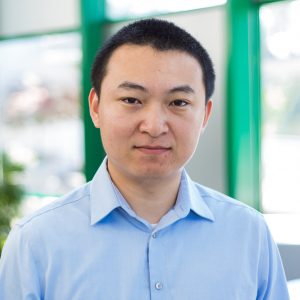Title: Towards 100% Renewable Energy: Development of Optimization and Control Tools Facilitating Massive Renewable Integration
Abstract: In this talk, we introduce some of my recent works on the development of optimization and control tools to facilitate renewable integration. The two main topics to be covered are DER aggregate flexibility characterization and grid integration, as well as transient stability analysis of inverter-based resources.
In the first part of the talk, we introduce new mathematical formulations and solution approachs to 1) characterize the flexibility region of aggregate DER; and 2) facilitate the participation of aggregated DERs in the wholesale energy market as a virtual power plant (VPP). An ellipsoidal inner approximation of the set of feasible power injection set (flexibility region) at the substation is constructed based on adaptive robust optimization (ARO) technique, which incorporates uncertainties and intertemporal correlation of DER power output characteristics. Leveraging optimal quadratic and affine policies, tractable safe approximations of the ARO can be obtained. To ensure compatibility with the existing market structure, we explore the design of generation cost curves for aggregate DER flexibility to facilitate its integration in the bulk power system. The cost curve design problem is cast again as an ARO problem which preserves both the aggregators’ competitiveness and profitability. Efficient solution algorithm based on concave programming and constraint generation algorithm is developed.
In the second part of the talk, we discuss the development of a Lyapunov-based transient stability certificate for droop-based inverter networks leveraging Kuramoto oscillator and compartmental systems theory. The certificate can be used to characterize the region of attraction for the inverter dynamics which ensures asymptotic stability and preserves constraint satisfaction for the entire post-fault dynamics. We discuss a scalable mixed-integer programming formulation to efficiently derive the region of attraction. The new stability certificate exploits special physical properties of the underlying network to reduce the conservatism of existing direct method-based certificates.
Speaker Bio: Bai Cui is a researcher with the Power Systems Engineering Center at the National Renewable Energy Laboratory (NREL). He received his Ph.D. degree in Electrical Engineering from Georgia Tech in 2018. Prior to joining NREL, he was a postdoctoral appointee with the Center for Energy, Environmental, and Economic Systems Analysis (CEEESA) at Argonne National Laboratory from 2018 to 2019. His general research interests are in the application of optimization and control tools in power system studies. Some recent topics of interests include power system resilience and renewable integration.